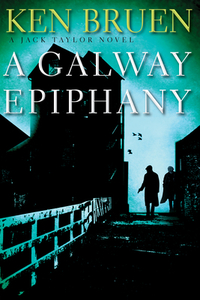The Space Between Worlds by Micaiah Johnson
 Friday, November 13, 2020 at 6:08AM
Friday, November 13, 2020 at 6:08AM 
Published by Del Rey on August 4, 2020
The Space Between Worlds is rooted in the familiar multiverse theory. The story imagines the ability to move between a limited number of Earths that are similar to our own. The protagonist is tasked with making those journeys. She brings energy and interest to the book's initial chapters. Unfortunately, the story becomes less interesting as it progresses. Some aspects of the novel appear to have been crafted to please soap opera or romance fans.
A woman named Cara lives in Ashville, where underprivileged people of color cope with polluted air and malnutrition. Cara scores a gig as a traverser in Wiley City, where the rich people live. There is little subtlety in the juxtaposition of Wiley City and Ashville, two cities separated by a wall. Ashville residents cannot enter Wiley City without a pass. That wealthy people live well and poor people live poorly is a universal, but we see too little of how the difference developed on Earth Zero, where the neighboring cities are located.
Cara’s job entails traveling to one of 380 parallel Earths that humans from Earth Zero can enter. These are Earths that are sufficiently similar to Earth Zero that they “resonate," whatever that means.
Traversing isn’t a job that many people can perform. Only people who have no counterpart on the world they are entering — only people whose counterpart died on that world — can enter. If your counterpart is alive, you will be rejected with extreme prejudice. Why? Well, that isn’t clear, although Cara feels there’s some sort of spirit being called Nyame who lives between the worlds and makes, or at least enforces, the rules. Readers of a superstitious mindset might appreciate Cara’s communion with Nyame. Had more flesh been given to the concept, I might have appreciated it, as well.
Cara’s value is that she has managed to die on 372 of the parallel Earths but not on Earth Zero. Not yet, anyway, no thanks to Nik Nik, who is the Emperor of Ashville on Earth Zero and most other Earths. On some of those, Cara is Nik Nik’s “favorite girl.” Nik Nik and his father before him have generally been the sort of authoritarian rulers who trade protection for tribute.
Adam Bosch, who invented the traversing technology, lives in Wiley City. He uses that technology to acquire minerals and stock tips and other valuable information from the parallel Earths, some of which exist in the future. Adam is evil in a greedy, hubristic way that makes him easy to dislike — particularly when it becomes clear just how twisted and murderous he is — but like the Earth Zero Nik Nik, Adam is little more than a stereotype. Adam is the Wiley City version of Nik Nik, more a capitalist king than an emperor, but the two men have a connection that is meant to be important to the plot. To the extent that The Space Between Worlds is a soap opera, huge revelations that are turn out to be relatively meaningless are part of the formula. A more interesting revelation, although one that comes early in the plot, is that the death-prone Cara isn’t who we think she is.
The story follows Cara as she visits a few different Earths, encounters different versions of Nik Nik and Bosch, and even encounters herself, which isn’t supposed to be possible. She has moderately interesting adventures and occasionally ponders how people might develop in different ways under different circumstances. That’s an interesting concept that should be enough to carry the story, but key parts of the plot go nowhere. Cara experiences emotional woe because she loves Dell on pretty much every world but doesn’t think that Dell could feel the same about poor trash from Asheville. Cara gets along with Nik Nik on world 175 but hates him everywhere else. All of which left me wondering if the story would ever go anywhere. It really doesn’t. At least, it doesn’t go far enough to justify the set up.
I appreciate the fluidity of Micaiah Johnson’s prose and the thought she put into the concept of traversing. I appreciated the characterization that went into Cara, although other characters are one dimensional. I would have appreciated the plot if the story had realized its potential. Where the story could have explored themes of nature and nurture, it instead becomes a muddle as Cara visits a handful of alternate Earths, all the while fretting about whether Dell will ever love her as much as she loves Dell. The story loses energy and fizzles out entirely by the last chapter. I was disappointed that The Space Between Worlds didn’t live up to the hype that has surrounded it, but I did enjoy significant parts of the story.
RECOMMENDED WITH RESERVATIONS



